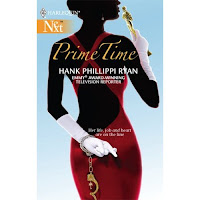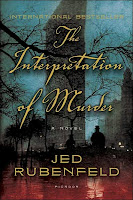STATUS: Today was mostly about getting ready to be out of town for Book Expo next week. It’s out in LA so basically my whole BEA week is about meetings with Hollywood people.
What’s playing on the iPod right now? MUSTANG SALLY by Wilson Pickett
This is such an interesting discussion that I want to point out one other facet. Writers need to be wary of the trap of believing that popular books don’t contain good writing.
What is and isn’t good writing is opinion, opinion, opinion. It’s highly subjective.
Hardcore fantasy fans can nod sagely about the average (in their opinion) writing of ERAGON (or Terry Goodkind’s WIZARDS FIRST RULE) and lament that if readers could only just read their work, which truly has a complex story line and good writing, they’d see the error of their ways.
Stephenie Meyer critics can critique Bella’s character or their perception of the plotting until the cows come home.
I could personally go on and on about how I don’t get why readers love the novels of Nicholas Sparks. It doesn’t mean anything folks.
Because I will tell you this right here and now. Millions of readers are not wrong. They aren’t—despite the fact that it might not agree with your personal opinion about any of the above books.
If you are smug in the excuse that the writing is average or the storyline didn’t work for you then you are missing the point. There is something about these novels that are capturing millions of readers (and the dollars in their wallets). Ultimately I refuse to believe that a million people are so “uncultured”, “stupid,” “non-discerning,” or “insert your phrase here” that they don’t get it. That’s condescending and underestimating the reading audience.
They do get it because millions of readers are not wrong.
Now you can disagree with their general opinion about a certain book. Heck, that’s your prerogative but don’t fall into the trap of underestimating the reading public. They don’t think like writers. They think like readers and they vote on what they like with the dollars they spend on what they buy.
Da Vinci Code. More than 7 million people bought that book. Did they care about the various expressed opinions of the writing quality in the Da Vinci code? No. Now maybe 100,000 people bought the book because everyone else couldn’t stop talking about it so they needed to find out what the fuss was about, but that doesn’t account for the other 6 million + copies that were sold and it certainly doesn’t explain the huge surge in sales of Dan Brown’s previous novels.
You can critique and create all kinds of reasons for why popular books shouldn’t be as popular as they are. It can be a fun pastime (I admit I indulge in it myself) and all power to you, but if you fall into the trap of that being all you are focusing on, then you are missing an opportunity to learn about why millions of people bought and loved certain books and how that might translate into something you can use in your work-in-progress.





